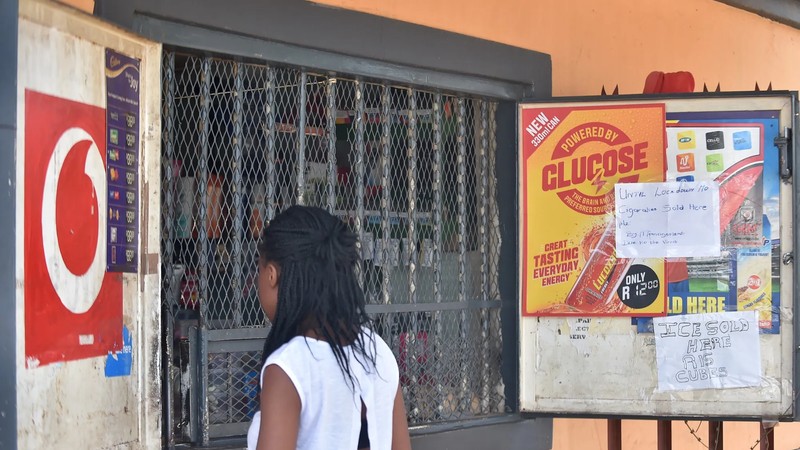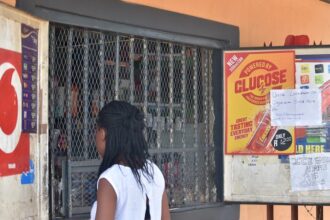Sharpeville residents are urging the government to strengthen regulations surrounding spaza shop ownership following a series of violent outbursts sparked by food poisoning incidents. The community has expressed concerns over foreign-owned spaza shops, demanding stricter regulations to safeguard public health and local businesses.
Gauteng Finance and Economic Development MEC Lebogang Maile visited the area on Monday in the wake of last week’s violence and looting of these shops. The unrest was triggered when several children fell ill after allegedly consuming food from spaza shops. While Maile assured residents that the government is addressing the issue, he stressed the importance of tightening border control through the Department of Home Affairs.
The public outcry includes calls for all foreign-owned spaza shops to be closed until more stringent laws are implemented to empower local businesses. The recent food poisoning cases in townships and informal settlements across Gauteng have escalated to a national security concern. Gauteng’s townships, including Ekurhuleni, Fochville, Tshwane, and Soweto, have seen a disturbing rise in foodborne illnesses, with several fatalities reported.
Tragic Incident in Naledi Sparks Outrage
In a particularly tragic incident, five children, aged seven to nine, died after consuming allegedly contaminated snacks bought from a spaza shop in Naledi, Soweto. This incident sent shockwaves through the community, prompting them to shut down shops and drive away foreign shop owners.
According to Motalatale Modiba, the spokesperson for the Gauteng health department, 294 food poisoning cases were reported between February and October, with the most affected areas being:
- Ekurhuleni: 121 cases
- Tshwane: 78 cases
- Johannesburg: 46 cases
- West Rand: 46 cases
- Sedibeng: 3 cases
The outbreak has claimed the lives of 16 individuals, with the following breakdown:
- Johannesburg: 7 deaths
- Ekurhuleni: 4 deaths
- Sedibeng: 3 deaths
- Tshwane: 2 deaths
The victims were mostly children between the ages of six and nine years old.
National Effort to Investigate Causes
In response to the alarming rise in food poisoning cases, the National Joint Operational and Intelligence Structure (NatJOINTS) has collaborated with the South African Police Service (SAPS), the Department of Agriculture, the National Consumer Commission, and the City of Johannesburg and Ekurhuleni Metro municipalities to investigate the source of the contamination.
Health Department spokesperson Foster Mohale revealed that after extensive discussions, the authorities concluded that the cause of the outbreak is likely due to a chemical agent. This determination came after a detailed analysis of possible biological, chemical, or physical agents contributing to the widespread food poisoning.
The government’s effort to investigate and resolve the issue is ongoing, with further measures expected to be implemented to prevent future incidents. However, the situation remains tense as communities continue to demand accountability and stricter control over spaza shop operations.
Residents Call for Local Empowerment
Beyond concerns over food safety, residents in Sharpeville and other affected areas are pushing for changes that would empower local entrepreneurs. They believe that stricter regulations and better enforcement of food safety standards would create opportunities for local businesses to thrive while ensuring that communities remain safe from health hazards. For now, the closure of foreign-owned spaza shops remains a contentious issue as the government seeks to find a balance between public health, economic development, and social cohesion.









